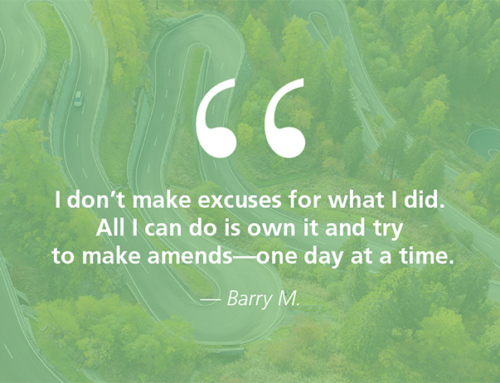You’re Home—Now What? Your Guide to Life After Prison

It’s over. No more prison. You step out, but suddenly the world feels bigger, faster, and a lot less forgiving than you remember. Maybe you don’t have a job lined up, or a place to stay, or even an ID. And if there’s no reentry program waiting for you, the odds can feel stacked from day one.
Here’s what you need to know: you aren’t the first to walk this road, and you don’t have to figure it all out alone. Thousands of people have started over and built real lives for themselves—one step at a time. Whether you are doing this on your own, helping someone you care about, or working in the reentry field, this guide has your back with honest answers and real resources.
Throughout this article, you’ll find direct links to free help for food, housing, jobs, transportation, mentorship, and more. A successful reentry isn’t just about surviving—it’s about a new start, with dignity and the right support.
Q&A: Straight Answers for Life After Prison
Q: I just got out. What should I do first?
A: The first 72 hours are huge. Your best move is to check in with your parole or probation officer right away. This isn’t just about following rules, it’s about building trust and keeping your freedom. If you are required to report to drug court, TASK, or another program, sign up fast. These systems might seem strict, but they can be your anchor while you figure things out.
Q: I don’t have food. Where do I go?
A: You have options. Go to your local Human Services office and apply for SNAP (food stamps). Bring your release papers and any ID you have. If you are staying in a shelter, ask for a letter confirming your address. Many other resources can also help you get free food.
Q: I’m worried about my health. What should I do?
A: A lot of people leave prison with untreated health issues—physical and mental. Schedule a check-up at a community clinic. If you are struggling with addiction, depression, or anxiety, ask about behavioral health services. You deserve care, and you don’t have to wait.
Q: How do I get around without a car?
A: Transportation is a real challenge. If you are in a city, look up local bus routes. Some reentry programs hand out free or discounted bus passes. Your local library may also offer transportation resources for free. In rural areas, ask friends, family, or church groups for rides to appointments. Prioritize rides for things that matter most—parole check-ins, job interviews, and health visits.
Q: I need a job, but I don’t have a license. What now?
A: Start wherever you can. Even if it’s day labor or a temp job, getting a paycheck helps you build momentum. If your license is suspended because of fines, call the DMV and ask about payment plans. Some states offer hardship licenses for work or medical needs.
Q: I feel stuck and ashamed asking for help. What should I do?
A: Shame is heavy, but asking for help is a sign of strength, not weakness. Reentry programs, 12-step meetings, and community groups exist for a reason. You don’t have to carry this alone.
Q: How do I stay motivated when it gets hard?
A: Reentry is a marathon. Setbacks—missed appointments, job rejections, family tension—are normal. Celebrate the small wins, not just the big ones. Progress beats perfection every time. Keep showing up, keep asking for help, and keep moving.
Q: If I’m a family member, how can I help?
A: Your support matters. Help your loved one with rides, paperwork, or even just listening. Be patient. They are adjusting to a world that kept moving while they were away. Encourage small steps and celebrate effort, not just results.

Common Questions We Hear Every Day
“Where am I going to sleep tonight?”
Housing is usually the first and scariest problem. Shelters fill up fast, and not everyone has family to turn to. Look for emergency housing and halfway houses, and don’t be afraid to ask for help.
“How do I get a job with a record?”
You are not the only one asking this. Employers do hire people with records. Be honest about your past if asked but focus on what you can do now. Many organizations help with job placement and job training.
“How do I get my ID and Social Security card?”
You need these to apply for work, housing, and benefits. Some reentry programs will help you get them for free. Ask your PO or case manager for forms and fee waivers.
If you are stuck on transportation, check local bus routes, look into bus passes, and talk to your PO if you are at risk of missing a check-in. There may be programs or churches that can help.
“How do I use this phone?”
Technology is changing almost daily. There’s no shame in needing help with email, app stores, or video calls. Here is an excellent video to help you learn how to use your phone in less than 10 minutes:

“What if I mess up?”
Fear of failure is real. If you miss a meeting or relapse, talk to your PO. Many want to help you get back on track, not send you back. Honesty goes a long way.
Conditions of release may be confusing. Always ask for a printed copy and keep it with you. If something doesn’t make sense, ask questions until it does.
Loneliness and isolation happen to almost everyone coming home. Support groups, mentors, and community centers can help you find supportive networks.
Quick Resource Round-up
1. Where to Get Food Immediately
- Check our resource map. Select Food/Clothing
- Call 2-1-1 for emergency food resources
- Ask shelters or churches for hygiene kits and clothing
2. Where to Sleep Tonight
- Check our resource map. Select Housing
- Ask your PO about halfway house options in your area
- Faith-based shelters often accept walk-ins
3. What Documents You Will Need Some reentry programs will help you get these for free. Ask your PO or case manager for help with forms and fees.
| Document | Why You Need It | Where to Get It |
|---|---|---|
| State ID | Jobs, housing, benefits | Local DMV |
| Social Security Card | Employment | SSA Office |
| Birth Certificate | ID and benefits | Vital Records Office in your birth state |
4. How to Apply for SNAP
- Visit your state’s human services website or local office
- Bring release papers, any ID, and proof of address (a shelter letter works)
- Ask for expedited SNAP—you may qualify within seven days
- If you don’t have an address, use the shelter’s address or probation/parole office. If denied, ask for help from a reentry professional or legal aid.
You’ve Made It This Far—Keep Moving Forward
Reentry is tough, but it’s not hopeless. If you are reading this, you’ve already done something most people don’t—you’ve started. Whether you are fresh out of prison or helping someone who is, there’s a path forward. And you don’t have to do it alone.
Let’s go, you’ve got this. It’s time to take the next steps together. Come back to this page so you can have easy access to all the resources you may need.


